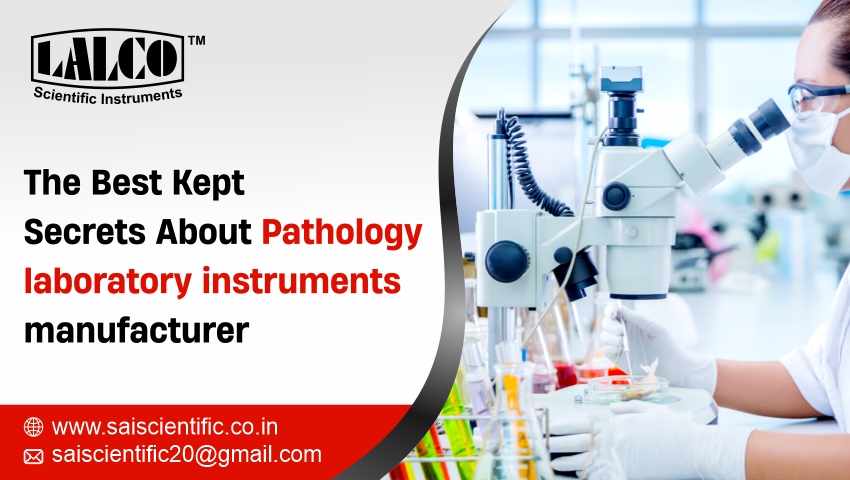Pathology is the branch of medicine that deals with the study of causes, effects, nature, and development of a disease. It has two components: anatomical pathology and clinical pathology with Sai Scientific. Anatomical pathology examines organs, tissue, and body fluids to diagnose diseases. Clinical pathology deals with blood and blood-forming organs like the bone marrow. It involves analyzing body fluids for pathogens, hormones, or chemicals that indicate certain conditions in your body.
Pathology Laboratories Are An Essential Part Of Modern Medicine.
Pathology laboratory instruments manufacturer is an essential part of modern medicine. They are the backbones of diagnosis and treatment of disease in any hospital. The task of the pathology laboratory is to examine tissues, organs, fluids, and cells to ensure that they are free of illness and working as they should be.
Pathology laboratories are an essential part of modern medicine, often providing the first or second level of diagnosis. They are typically accessed through a primary care group or a hospital and may be directly or indirectly linked with a hospital. The services provided by, or in cooperation with, pathology laboratories include:
- Anatomical pathology services such as autopsy, surgical pathology, and cytopathology.
- Clinical laboratory services (also known as clinical pathology) such as hematology, microbiology, and blood transfusion services .
- Genetics services such as cytogenetics, molecular genetics, and biochemical genetics.
- Forensic pathology services may be provided to coroners, police, or lawyers in medicolegal investigations.
Pathologists are medically qualified doctors who specialize in examining body tissues and cells. They work closely with scientists and other health professionals to provide the information needed to diagnose disease. Pathologists are responsible for ensuring that diagnostic tests are carried out accurately, and that results are communicated effectively.
Specialized Pathology Laboratory Instruments And Machines .
The Pathology Laboratory is a significant component of any hospital, and the instruments used in the Pathology Laboratory are critical to the diagnostic process. The Pathology Laboratory must have all the appropriate equipment necessary to perform its routine duties. The instrumentation used in the pathology laboratories includes:
- The Microscope helps identify disease-causing organisms such as bacteria, viruses, etc.
- The Hematology Analyzer analyzes blood cells. This machine gives an idea about the number of white blood cells, red blood cells, and platelet count. It also provides information about the hemoglobin content of a blood sample.
- The Laboratory Centrifuge Machine is used to separate different blood components from each other such as red blood cells from serum.
- Microtome for preparing thin sections.
- Light microscope for examining tissue sections.
- Cryostat for preparing frozen thin sections.
- Surgical Microscope for performing microsurgery.
- Ultracentrifuge for preparing blood components.
- Automatic Microtome for preparing paraffin sections of tissues and cells.
- Microscope slide stainer for staining the tissue slides automatically.
Pathologists also use other laboratory instruments, such as incubators, ovens, spectrophotometers, and centrifuges. In addition, new technologies are emerging, such as automated microscopes and robotic laboratory automation systems that enhance the work done by highly skilled medical/laboratory technicians.
Laboratory Instruments Manufacturers Should Have A Grasp Of The Latest Technology.
Pathology laboratory instruments manufacturer should have a grasp of the latest technology with Sai Scientific and know what’s going on in the market. They need to innovate and be able to produce new equipment that can meet the demands of customers, but the bottom line is that this equipment must be safe for use.
This is where standards come into play. Medical devices must comply with specific safety standards before they can be sold, and compliance with these standards is required by law. The manufacturer must accurately understand the latest clinical and technological innovations. Innovation is key to success, and to accomplish that innovation, companies need to implement processes that can keep up with the ever-changing needs of patients. To ensure the safety of products within their market, medical devices manufacturers & suppliers in Europe must comply with guidelines laid out in Medical Devices Directive 93/42/EEC.

